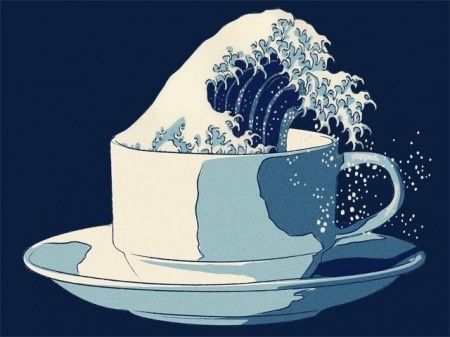 1. Neptunian souls are always half a step away from this world, their feet brushing the surface of some distant, otherworldly realm. These individuals come with the burden of the unmanifested—the secret, unspoken dreams that swell within them like the tide but rarely find their way to shore. They might wander through life feeling a sense of disconnection, as if they’re searching for something that lies just beyond their reach—a truth too fragile for this world, a love too pure for the mortal plane. These are the dreamers, the mystics, the artists who see beyond the veil, who speak in symbols and metaphors, whose lives are lived in the subconscious. Yet, for all their mystery, there’s a vulnerability there, too. The fear that the world, in its bluntness, might shatter their visions, might trample their dreams. They protect their inner world fiercely, for it is the place where they are most themselves, free from the demands and expectations of the external world. The Neptune-touched, those who glide through life with a sensitivity that borders on the supernatural, pick up every vibration of human experience. But here’s the thing about living with such sensitivity: it’s akin to walking around with your skin on the outside, exposed to every breeze, every glance, every offhand remark. It’s no wonder, then, that those under Neptune’s spell often retreat into the realm of their dreams, shielding their tender hearts from the harshness of the world’s judgment. They become the masters of subtlety, expressing their truths through art, music, and words that are laced with layers of meaning.
1. Neptunian souls are always half a step away from this world, their feet brushing the surface of some distant, otherworldly realm. These individuals come with the burden of the unmanifested—the secret, unspoken dreams that swell within them like the tide but rarely find their way to shore. They might wander through life feeling a sense of disconnection, as if they’re searching for something that lies just beyond their reach—a truth too fragile for this world, a love too pure for the mortal plane. These are the dreamers, the mystics, the artists who see beyond the veil, who speak in symbols and metaphors, whose lives are lived in the subconscious. Yet, for all their mystery, there’s a vulnerability there, too. The fear that the world, in its bluntness, might shatter their visions, might trample their dreams. They protect their inner world fiercely, for it is the place where they are most themselves, free from the demands and expectations of the external world. The Neptune-touched, those who glide through life with a sensitivity that borders on the supernatural, pick up every vibration of human experience. But here’s the thing about living with such sensitivity: it’s akin to walking around with your skin on the outside, exposed to every breeze, every glance, every offhand remark. It’s no wonder, then, that those under Neptune’s spell often retreat into the realm of their dreams, shielding their tender hearts from the harshness of the world’s judgment. They become the masters of subtlety, expressing their truths through art, music, and words that are laced with layers of meaning.
Yet, there’s a certain loneliness in this indirect expression, a longing for connection that is tempered by the fear of exposure. The fear that if they were to lay their souls bare, to reveal the full extent of their aspirations and dreams, they would be met not with understanding, but with ridicule or dismissal. And so, they keep their true selves cloaked in mystery, allowing only glimpses to be seen. Yet, while their art may protect them, it also has the power to connect them. In those moments when their work resonates with another, when someone sees in their creation a reflection of their own soul, that’s when the transformation happens. This is when the distance between the Neptunian and the world collapses, if only for a moment, and they’ll find that their hidden dreams are not so different from those of others. In this shared understanding, they might discover that the world is not as unkind as they feared, that there are those who appreciate the depths of their sensitivity, who value the nuance of their expression. Art becomes a bridge between their inner world and the outer one, a way to communicate without the need for direct confrontation.
The World Is Too Harsh
Neptunian individuals often find the world as it is—crass, mundane, and altogether too harsh—a poor substitute for what lies in their imagination. It’s no surprise, then, that they might seek refuge in escapism, where the lines between fantasy and reality blur into a comforting haze. Whether it’s through the seductive pull of daydreams, the consuming passion of immersive hobbies, or, in darker moments, the numbing of substances, Neptune’s children are masters at slipping away from everyday life. They retreat into their inner world, where they can indulge in the beauty of their own creation, free from the disappointments and banalities of the external world.
But here’s the paradox: for all their escapism, these Neptunian souls crave connection—deep, soulful bonds that resonate with the same intensity as their inner world. They long to be understood, truly understood, by someone who can see beyond the smokescreen, past the illusions, and into the heart of their dreams. Neptune sees the world not as it is, but as it could be, should be, in their most cherished dreams. And that vision, while beautiful, sets a high bar that reality often fails to meet.
To protect themselves from the sting of disappointment, they keep their dreams close, hidden in the safety of their own hearts. It’s a form of self-preservation, a way to ensure that their precious visions aren’t crushed by the weight of the world’s limitations. But this secrecy comes at a cost—by hiding their dreams, they also hide a part of themselves, and the connections they yearn for remain elusive, never fully realized.
The challenge for the Neptunian, then, is to find balance—to dip a toe into the waters of reality without losing the dreamer within. To allow themselves the occasional indulgence of escape, but not to the point where they lose sight of reality. And perhaps most importantly, to trust that there are those in this world who can meet them halfway, who won’t shy away from their sensitivities.
Idealism
 2. With Neptune’s influence, boundaries become as fluid as water, dissolving in a mist of empathy and compassion that allows these individuals to connect with others on a whole other level. It’s as though they can feel the world’s pulse beneath their own skin, sensing the joys, sorrows of those around them as if they were their own. This dissolution of boundaries allows Neptune’s children to transcend the mundane divisions that often keep us apart. They see the world not in stark contrasts but recognize the interconnectedness of all things. Their hearts are vast oceans of feeling, capable of holding the whole of humanity’s hopes and hurts, and this makes them vulnerable. The world, in all its glorious imperfection, rarely lives up to their utopian visions. These individuals often have vivid imaginations, painting their lives with the hues of a perfect world—one where harmony reigns, and every interaction is infused with meaning and depth. But when reality fails to align with these dreams, the result can be a deep sense of disillusionment, a jarring reminder that the world is far messier and more complex than their idealistic hearts would like it to be.
2. With Neptune’s influence, boundaries become as fluid as water, dissolving in a mist of empathy and compassion that allows these individuals to connect with others on a whole other level. It’s as though they can feel the world’s pulse beneath their own skin, sensing the joys, sorrows of those around them as if they were their own. This dissolution of boundaries allows Neptune’s children to transcend the mundane divisions that often keep us apart. They see the world not in stark contrasts but recognize the interconnectedness of all things. Their hearts are vast oceans of feeling, capable of holding the whole of humanity’s hopes and hurts, and this makes them vulnerable. The world, in all its glorious imperfection, rarely lives up to their utopian visions. These individuals often have vivid imaginations, painting their lives with the hues of a perfect world—one where harmony reigns, and every interaction is infused with meaning and depth. But when reality fails to align with these dreams, the result can be a deep sense of disillusionment, a jarring reminder that the world is far messier and more complex than their idealistic hearts would like it to be.
This idealism, while a source of inspiration and creativity, can also lead to a certain kind of paralysis. With so many possibilities shimmering on the horizon, each one more enchanting than the last, Neptune individuals might find it difficult to choose a single path. They drift on a river, carried by the currents of external influences, ever open to new directions but seldom anchored by a clear, definitive course. It’s a life of beautiful uncertainty, but also one where the lack of concrete goals can lead to a sense of aimlessness, of floating through existence without a firm grip on the tiller.
The Shadow Side
And then there’s the shadow side of Neptune’s influence—the susceptibility to illusions and deceptions, both self-imposed and external. These individuals, with their open hearts and yearning souls, can be easily swayed and in need of escape, whether it’s through the seductive call of daydreams, the numbing effects of substances, or the rose-tinted glasses of excessive idealization. In their desire to see the world as it could be, they sometimes lose sight of the world as it is, leaving them vulnerable to disillusionment and confusion when the truth inevitably asserts itself. Their challenge is to walk that fragile line between the ideal and the real, to let their dreams guide them without losing sight of the ground beneath their feet. In doing so, they not only find their own direction but also offer the rest of us a glimpse of the beauty that lies just beyond the horizon.
Touching the Divine
Those blessed with Neptune’s touch are conduits to the divine wellspring of creativity, drawing from a reservoir of imagination and inspiration that others might only glimpse in their dreams. Their ability to transcend the ordinary, to see beyond the veil of reality, often fuels artistic and spiritual pursuits that are acts of deep communion with something greater than themselves. This immense creative potential is one of Neptune’s greatest gifts, allowing individuals to channel their sensitivity and empathy into works that move and inspire, touching the hearts of others in profound ways. They have the ability to articulate the ineffable, to give form to the formless, and to express the subtle energies and emotions that flow beneath the surface of everyday life. In their art, we find a mirror of our own inner worlds, a reflection of our deepest longings, fears, and hopes.
Yet, for all this beauty, the Neptunian path is not without its challenges. Their ability to dissolve boundaries, while a source of creativity, can also leave them unmoored, drifting in a sea of possibilities without a clear sense of direction. The world, with its demands for practicality and groundedness, can feel like an alien landscape, far removed from the fluid, dreamlike realm where they are most at home. Their openness makes them susceptible to deception, both from others and from themselves. Learning to question their perceptions, to test their dreams against the touchstone of reality, can help them avoid the pitfalls of escapism and self-delusion. This doesn’t mean abandoning their idealism, but rather tempering it with a healthy dose of pragmatism.
A practical approach to life, though it may seem antithetical to the Neptunian nature, can actually enhance their creative and spiritual pursuits. By establishing routines, setting boundaries, and focusing on realistic outcomes, they create a stable foundation from which their creativity can soar. By grounding themselves, they allow their visions to take root in the world, where they can bloom into something truly transformative. Their challenge, and their greatest potential, lies in bringing the beauty of their inner world into the light of day, where it can inspire and uplift us all.

3. Mist and fog often act as veils of the natural world, shrouding our surroundings in a transient mystery, are much like the influence of Neptune itself. There’s something undeniably enchanting about these atmospheres, isn’t there? They create a world that’s half-revealed, half-hidden, where the familiar becomes strange and the boundaries of reality seem to dissolve into a soft, nebulous haze. It’s as though we’ve stepped into a liminal space, a threshold between the known and the unknown, where everything is in flux and nothing is quite as it seems. In these moments, when the world is draped in mist or fog, we’re reminded of the ephemeral nature of all things. Objects emerge from the mist only to recede back into it, people appear and disappear like ghosts, and the landscape itself seems to breathe and shift in ways that challenge our sense of solidity and permanence. It’s a world of soft edges and muted tones, where time feels slower, more fluid, and where our usual perceptions are gently, but persistently, questioned.
Under Neptune’s influence, this sense of impermanence is a way of being. Just as mist and fog blur the lines between land and sky, sea and shore, Neptune blurs the lines between reality and dream, self and other, presence and absence. People and things under Neptune’s sway can seem to materialize out of nowhere, as if called forth by some unseen force, only to vanish just as suddenly, leaving behind only the faintest trace of their existence. This gives life a certain mystique, a sense of fleeting beauty that’s both beautiful and, at times, unsettling. It’s the enchantment of the unknown, the thrill of encountering something—or someone—that defies easy categorization or explanation. But it’s also the melancholy of knowing that such encounters are often brief, like hearing the echo of a distant melody. It reminds us of the transitory nature of life, of how quickly things can change, and of the importance of savoring the moment before it slips away.
Yet, this impermanence teaches us to be present, to appreciate the here and now, and to find beauty in everything. In the Neptunian mist, we learn to let go of our need for certainty and control, to accept the fluidity of life, and to trust in the process of becoming and dissolving, appearing and disappearing. For in that space, we might just discover something about ourselves, about life, that is as elusive and profound as the fog itself—something that can only be glimpsed in the soft light of the unknown, where everything is in flux and anything is possible.
There’s something almost magical about how these vaporous veils dance with light, turning the world into a living vision of soft hues and glowing halos. In these moments, even the most ordinary scenes are elevated to the extraordinary, as if we’ve stumbled into a dream that’s just on the verge of waking. Mists have a way of inviting us into a different kind of sensory experience. The cool kiss of moisture on our skin, the way sound is softened and hushed, creating an almost reverent silence. This obscurity doesn’t just change how we see the world—it changes how we feel about it.
Just as a fog can obscure the path ahead, so too can it symbolize the journey into the depths of the subconscious, where nothing is quite what it seems and where the answers we seek are often hidden beneath layers of ambiguity and doubt. In these misty landscapes, we confront the mysteries of the human psyche, the parts of ourselves that are difficult to see clearly, that resist definition, and that are ever-changing. Under Neptune’s transits, when we find ourselves enveloped in mist, we should consider it an opportunity. An opportunity to pause, to reflect, to explore the unknown without the need for immediate answers. Not everything needs to be seen clearly to be appreciated, sometimes it’s the very act of looking through the haze that reveals the true magic of the world.

4. For those under Neptune’s sway, life can often feel like a journey where nothing is quite as it seems, and the solid ground of certainty seems ever out of reach. Neptunians perpetually wandering through the realms of their own imagination, surrounded by the ghostly apparitions of hopes and fantasies that flicker in and out of existence. These Neptunian souls are dreamers, visionaries who see beyond the surface, into the depths where possibilities are limitless and the boundaries of reality are fluid. Yet, the very qualities that make them so attuned to the subtle, the mystical, and the sublime can also leave them feeling unmoored, adrift in a sea of possibilities with no clear direction to guide them. The familiar landmarks of life—career goals, personal ambitions, concrete plans—are obscured, leaving them with only vague shapes and shadows to guide their way. In this nebulous state, defining one’s goals can feel like trying to catch smoke with bare hands. The clarity and definition that others might take for granted is elusive, and the path forward is often obscured by layers of doubt, idealism, and the ever-present lure of escape into the realms of imagination.
Yet, there’s a strange beauty in this fog, a quality to the feeling of being lost that only a Neptunian can fully appreciate. For in this state of drifting, there is also freedom—the freedom to explore, to dream, to imagine a world that could be, rather than simply accepting the world as it is. It’s in these moments of uncertainty that the seeds of creativity are often sown, where the boundaries of possibility are stretched, and where new insights can emerge.
But, of course, one cannot wander in the mist forever. For the Neptunian, this means learning to balance their dreamlike qualities with the demands of the real world. It’s about finding ways to bring their visions into focus, to translate the language of the subconscious into something that can be understood and acted upon. This might involve setting small, realistic goals that serve as waypoints, helping them to stay on course even when the larger picture remains unclear. In doing so, Neptune individuals can begin to find their way through the fog, not by dispelling it entirely, but by learning to move through it with confidence.
Frustrations in Communication
For Neptune’s children, communication can often feel frustratingly elusive when it comes to making that connection with others. Neptunians often dwell in a world rich with imagination, layered with meaning and emotion, where thoughts are not linear but rather drift and swirl like smoke in the air. They see life in soft, shifting shades of color, filled with ambiguity. Yet, translating this inner world into words that others can understand can be a challenge. Language, with all its rules, often feels inadequate, and the result can be a sense of isolation, of being trapped in an inner world that remains just out of reach for those on the outside.
This struggle can lead to frustration and a deep sense of being misunderstood. Imagine speaking a language that no one else seems to understand—a language of symbols, metaphors, and feelings that defy straightforward explanation. Neptunians might find themselves sharing their thoughts and emotions, only to be met with blank stares or, worse, misinterpretation. It’s as if they are trying to describe the shape of a cloud to someone who only sees the sky as an endless blue. Their thinking and idealistic visions, so clear and vivid within, often appear vague or impractical to others, leading to a sense of detachment from those around them. Neptunians may feel like they exist in a parallel reality, where their perceptions and experiences are invisible to those around them. This can create a sense of loneliness, as if they are moving through life like a phantom, their true essence known only to themselves.
Neptunians, with their rich inner worlds, have the potential to communicate in ways that go beyond words. Their gift is to touch others on a deeper, more intuitive level, to convey meaning through art, music, poetry, or even through the subtle energy they bring into a room. These are the languages of the soul, the languages that can bridge the gap between the seen and the unseen. While they may never fully escape the occasional sense of being misunderstood, they can learn to trust that their true essence will be felt, even if it’s not always fully grasped. After all, not every message needs to be perfectly articulated to be understood; sometimes, it’s the feeling, the energy behind the words, that speaks the loudest

5. There’s something almost mystical about their ability to sense the unspoken, to pick up on the subtlest shifts in energy, like an antenna constantly tuned in to the wavelengths of the heart. This deep well of empathy, this extraordinary capacity to feel alongside others, is both a gift and a challenge, one that brings them closer to the essence of what it means to connect but also leaves them vulnerable to the emotional tides they encounter. Neptune individuals are akin to emotional sponges, soaking up the moods, feelings, and energies of those around them with such intensity that it can sometimes feel as if they’re living through others’ experiences. This deep identification with the emotions of others allows them to offer a kind of comfort that goes beyond words—a presence that says, “I understand,” even when nothing is said. They can intuit what someone needs, often before that person even knows it themselves, offering understanding in ways that are gentle, compassionate, and profoundly healing.
But while their empathy allows them to connect with others on a deeply meaningful level, it also makes them susceptible to emotional overload. Like a sponge that can only hold so much water before it becomes saturated, Neptune individuals can find themselves overwhelmed by the sheer weight of the emotions they absorb. They might carry the burdens of others long after the conversation has ended, feeling someone else’s pain as if it were their own. This can lead to emotional exhaustion, a kind of weariness that comes from holding too much of the world’s suffering within themselves.
The blurring of boundaries is another hallmark of Neptune’s influence. With their psychic sponge-like quality, Neptune individuals often struggle to distinguish between their own emotions and those of others. They might find themselves so deeply immersed in another’s experience that their own sense of self becomes fuzzy, like mist over a mirror. While this deep connection forms relationships with others, it can also make it difficult for them to maintain a clear sense of identity, to know where they end and someone else begins.
Yet, this very quality that challenges them is also what makes them such natural healers and caregivers. Drawn to roles where they can offer support, guidance, and healing, Neptune individuals bring a depth of understanding to their work. Whether as counselors, therapists, nurses, or simply as friends and confidants, they have an ability to soothe the troubled heart, to offer insights that come not from intellectual analysis but from a deep, intuitive understanding of the human condition.
The empathy that flows so naturally through Neptune individuals leaves them vulnerable to the emotional currents they so effortlessly absorb. Their ability to tune into the feelings of others, to understand and even embody those emotions, is nothing short of a superpower. But as with all superpowers, it comes with a cost—a susceptibility to emotional overwhelm that can leave them drained and in need of refuge from the very connections that define them.
The constant absorption of others’ feelings can be like standing in the rain without an umbrella—at first, it’s refreshing, even invigorating, but over time, it becomes heavy, soaking through to the bone. For Neptune individuals, this emotional saturation can lead to exhaustion, a kind of weariness that seeps into their soul, making it imperative for them to find regular periods of solitude and self-care. It’s during these quiet moments alone that they can wring out the emotional sponge, so to speak, releasing what they’ve absorbed and returning to their own center.
The lines between their own emotions and those of others can become blurred, leading to confusion and inner turmoil. When they are constantly walking through a realm where their own feelings mix and mingle with the energies they’ve picked up from those around them, it make it difficult to discern what is truly theirs and what has been unconsciously borrowed. This can lead to a sense of being lost within their own emotional landscape, unsure of where they stand.

6. The tender heart of the Neptunian soul is a vessel brimming with sensitivity and emotional depth, a sea stirred by every ripple and tide. This depth can be a wellspring of creativity, a source from which beauty and empathy flow in abundance. But as with any ocean, it’s not without its storms. The same currents that inspire can also pull one into darker waters, where melancholy and isolation lie in wait, ready to drag them beneath the surface. The idealism that Neptune bestows is the lens through which Neptunians see the world—not as it is, with all its rough edges and imperfections, but as it could be, bathed in the soft light of dreams and possibilities. But when the cold, hard truths of reality clash with these dreams, the result can be a deep sense of disillusionment. The gap between what is and what should be can feel like an abyss, leading to feelings of depression and loneliness as the harshness of the world seems too great to bear.
It’s in these moments of disillusionment that the need to escape can become almost irresistible. Drugs and alcohol can become tempting portals to a realm where the boundaries between reality and dream dissolve, where the weight of the world feels lighter, if only for a little while. But this escape is a dangerous one. The numbing effect of substances may provide short-term relief, but it comes at a steep cost. The more one relies on these external crutches, the more they distance themselves from their true self, from the very depths that make them who they are. The temporary relief gives way to a deeper sense of emptiness, as the underlying issues remain unaddressed, buried under layers of intoxication and denial.
For Neptunians, the challenge lies in finding healthier ways to manage their sensitivity and emotional depth. Artistic expression remains one of the most powerful tools in the Neptunian arsenal. By channeling their emotions into their art, they can transform pain into something beautiful, something that resonates with others and helps them feel less alone. This creative process can be both healing and empowering, offering a sense of purpose and a way to make meaning out of the chaos of emotions that often swirl within them. It’s learning to ride the waves of emotion without being swept away, to find beauty in the melancholy, and to transform their vulnerability into a source of power and connection.
The insidious grip of alcohol is a substance that can, at first, seem like a medicine to the weary soul, offering warmth, relaxation, and a temporary escape from the pressures of life. Yet, when consumed excessively and over time, it reveals its darker side, wreaking havoc on both body and mind. The brain, our delicate organ of thought, memory, and perception, is particularly vulnerable to the ravages of alcohol, leading to conditions like alcohol-related brain damage. ARBD is a cruel consequence of prolonged and excessive drinking, a slow erosion of cognitive function that can manifest in a host of debilitating symptoms. Memory begins to falter, once-sharp mental faculties grow dull, and perception becomes distorted—like trying to see the world through a lens that’s gradually losing its reality. For some, even eyesight can be affected, with blurred or double vision serving as a reminder of the physical toll that alcohol exacts on the body. This isn’t just about the physical effects, though; alcohol’s impact on the brain can also deeply affect one’s emotional and psychological state. As cognitive functions decline, so too can the ability to process emotions and cope with life’s challenges, leading to a vicious cycle where the individual might turn to alcohol for comfort, only to further exacerbate the damage.
This inclination towards escapism can come with a significant cost. In their desire to avoid the harshness of life, Neptunian individuals might find themselves perpetually retreating from the very experiences that could help them grow and evolve. The challenges and difficulties of life are evaded, but these are opportunities for learning, for developing self-sufficiency, and for building a deeper understanding of oneself and the world. When these are avoided, the result can be a kind of stasis, where the Neptunian soul remains suspended in a dreamlike state, disconnected from the realities that ground most people.
Neptunian individuals might engage in avoidance behaviors, whether it’s losing themselves in endless daydreams, immersing themselves in creative pursuits to the exclusion of all else, or even turning to substances that dull the edges of reality. There’s a tendency to see the world not as it is, but as they wish it to be—through a lens of idealism that filters out the unpleasant and inconvenient. This can lead to a clouded perception of reality, where the lines between what is real and what is imagined become indistinct.
Liz Greene says that AA was formed under a Sun trine Neptune contact in the 11th house, and so it suggests that it is a place of spiritual openness, compassion, and empathy—qualities that are at the heart of group’s approach to recovery. Neptune, with its association with dreams, illusions, and the dissolution of boundaries, often governs the realm of addiction, where the lines between pleasure and pain, escape and entrapment, can become dangerously blurred. But Neptune also represents healing, compassion, and the transcendent power of spirituality—key elements in recovery.

7. Under Neptune’s influence, life can often feel like a series of blurred edges, where the harsh lines of reality are softened, if not entirely erased, by the mist of imagination and idealism. For these individuals, the world is not something to be confronted head-on but something to be danced around, observed through a veil that keeps the unpleasantness at a comfortable distance. There’s a certain poetic beauty in this inclination, a kind of romanticism that sees life not in unforgiving terms, but in soft focus, where the possibilities of what could be are always more enticing than the hard truths of what is. Neptunian people are often drawn to the world of art, music, literature, and fantasy as a refuge. These creative realms offer an escape from the mundane, a place where they can express their deepest emotions and ideas without the constraints of reality. It’s here, in the land of dreams, that they feel most alive, most themselves.

8. Neptune is the portal through which the mundane is left behind, and the infinite, the mystical, the transcendent comes into focus. Those with a strong Neptune influence often find themselves drawn to spiritual pursuits, seeking to connect with something greater than themselves, to explore the mysteries of existence, and to find a sense of peace and unity with the cosmos. Their spiritual journey is often one of surrender—letting go of the ego, the finite, and the material, and opening themselves up to the infinite possibilities of the soul. This path can lead to greater discoveries and experiences, as they tap into the vast reservoir of spiritual wisdom that Neptune offers. Yet, even as they explore these higher realms, Neptunians are tasked with the challenge of bringing what they find back into the world. Their visions, their creativity, their spiritual insights—these are not meant to be kept locked away in the realm of dreams, but shared with others, used to inspire, to heal, to uplift. Whether through their art, their words, their presence, or their actions, Neptunians have the potential to be a force of beauty and compassion in the world, offering others a glimpse of the transcendent, the ethereal, the divine.
So, if you find Neptune prominently placed in your birth chart, you have been given the gift of imagination, creativity, and spiritual insight—gifts that allow you to see beyond the limitations of the everyday and to connect with something greater, something more beautiful and enchanting. Your challenge is to use these gifts wisely, to find ways to bring your visions into reality, and to share them with a world that is in desperate need of the beauty, compassion, and spiritual wisdom that Neptune offers.
Neptune’s influence inspires them to work tirelessly to manifest these visions in their own lives and in the communities they care about. Whether through activism, community service, or simply living by example, Neptunians hope to make the world a more better place, driven by a deep belief in the possibility of a more compassionate world. Their work is never in vain, for even the smallest acts of kindness, beauty, and compassion can ripple out and make a difference.
There’s something enigmatic, almost otherworldly, about these souls, as if they are always half in this world and half in another. This is part of their charm, a reflection of the deep inner world they carry within them, a world that is rich with imagination, emotion, and spiritual depth. Others might find themselves drawn by this quality, sensing that there is more to the Neptunian than meets the eye, and feeling drawn to explore the layers beneath the surface.
This magnetism, however, is not something Neptunians consciously cultivate—it’s simply a natural expression of their connection to the mystical. Their presence alone can have a calming, almost hypnotic effect on others, creating an environment where people feel safe to open up, to explore their own inner worlds, or to simply be. But with this gift comes a responsibility, as others may project their own fantasies and ideals onto the Neptunian, seeing them not as they are, but as they wish them to be.

9. Neptune in transit symbolizes a time when the fog rolls in, blurring the edges of our reality and inviting us into a world where certainty is but a distant memory. During these transits, a veil is drawn over the reality we once had, replacing it with a dreamy, surreal atmosphere that blurs the lines between what is and what might be. Neptune’s energy can be both enchanting and bewildering, casting a spell that can make the ordinary seem magical, yet also leaving us adrift, searching for solid ground that seems to have vanished beneath our feet. When Neptune takes the reins of our psychological landscape, we might find ourselves walking through life as if in a waking dream. The usual sharpness of our perceptions dulls, and everything takes on a softer, more fluid quality. People, events, and even our own emotions become harder to pin down, as if they are constantly shifting, changing shape just as we think we’ve grasped them. It’s a time of ambiguity, where the true essence of things slips through our fingers, and the clear lines of distinction we once relied on dissolve into the mist.
This psychological haze can be disorienting, to say the least. Imagine trying to make your through a dense fog where every familiar landmark is obscured, and every direction feels uncertain. During Neptune transits, this fog manifests both externally and internally, clouding our thoughts and feelings, making it difficult to discern what is real from what is imagined, what is true from what is wishful thinking. It’s as though life itself takes on a dreamlike quality, where the boundaries between reality and fantasy become porous and easily crossed.
One of the most challenging aspects of a Neptune transit is the sense of directionlessness that often accompanies it. The clear goals and ambitions we once held can suddenly seem irrelevant or out of reach, as if the path ahead has disappeared into the mist. Decisions that would normally be straightforward become fraught with uncertainty, as we struggle to see the road before us. This can lead to feelings of being lost, adrift in a sea of possibilities with no clear way forward.
Neptune’s influence can also bring about a distortion of perception, where we see the world not as it is, but as we wish it to be—or, conversely, as we fear it might be. This can take the form of idealization, where we view people or situations through rose-colored glasses, seeing only the best and ignoring the flaws. But when the fog begins to lift, we may be confronted with the bleak reality that what we thought was a fairytale is, in fact, much more complicated. This disillusionment can be painful, but it’s also an important part of the Neptune journey—a reminder that dreams and ideals must be grounded in reality to be truly fulfilling.

10. The Great Smog of London in December 1952 was a moment in history seen through the lens of a Saturn-Neptune conjunction. Neptune, with its association with mist, fog, and all things nebulous, represents the dreamlike world. Its energy is one of dissolution, where boundaries fade. In an atmospheric sense, Neptune’s influence can manifest as the kind of haziness that turns the world into a blur, where visibility is reduced and the line between reality and illusion is thin. This is the realm of the mysterious veils that obscure our vision, both literally and metaphorically. Saturn, by contrast, is the planet of form, boundaries, and the material world. It is the force that brings form and definition, that sets limits and imposes order. Saturn’s influence is one of grounding, of crystallizing ideas into reality, but it also carries the weight of restriction and the cold, hard realities of the physical world. When Saturn’s energy is predominant, we are reminded of our limitations, our responsibilities, and the often harsh conditions of existence.
When these two planets come into conjunction, their energies blend in a way that can create scenarios where the nebulous meets the concrete. In the case of the London smog, this astrological alignment seems almost poetic in its reflection. However, this was no ordinary mist—it was a dense, toxic cloud that descended, infiltrating every aspect of daily life. This event can be seen as a literal manifestation of Neptune’s haziness being constrained by Saturn’s boundaries, creating an oppressive atmosphere where visibility was reduced to almost nothing and the air itself became a source of danger.
The consequences of this conjunction were severe. The smog disrupted transportation, infiltrated homes and buildings, and had devastating health effects on the population. Thousands of people became ill, and it’s estimated that the smog led to the deaths of over 4,000 individuals. The event highlighted the reality of industrial pollution and the limits of the environment’s ability to absorb the byproducts of human activity—a very Saturnian lesson in the consequences of ignoring the boundaries of what the natural world can endure.
In a broader sense, the Great Smog of London also serves as a metaphor for the dangers of ignoring the signs that Neptune and Saturn can offer us. Neptune’s tendency to obscure reality with illusion or idealism must be balanced with Saturn’s insistence on facing the truth and respecting boundaries. When we fail to heed these lessons, we may find ourselves, like Londoners in 1952, trying to make our way through a thick fog of our own making, where the consequences of our actions become inescapably clear.












